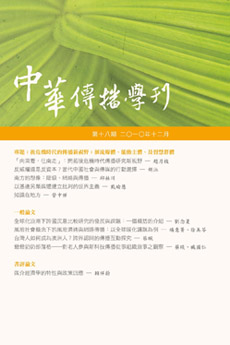 閱覽人數: 36
閱覽人數: 36
December
2010
No. 18
後危機時代的傳播新視野:滙流媒體、能動主體、及智慧群體
New Perspectives in Communication Research in the Post-Crisis Era頁數:3 - 30
作者(中)
趙月枝
作者(英)
Yuezhi Zhao
關鍵詞(中)
文化本質主義、中國傳播研究、西方知識霸權、全球資本主義
關鍵詞(英)
cultural essentialism, Chinese communication research, Western knowledge hegemony, global capitalism
中文摘要
本文以後危機時代和全球權力關係轉型背景下的中國大陸傳播理論與實踐發展為主要參照,從四個層面討論 「向東看,往南走」這一命題對啟動傳播研究理論想像的意義。首先,需要挑戰西方霸權知識/權力體系,在「南方認識論」等後殖民社會知識理論的引領下構建作為全球社會正義基礎的「全球認知正義」。其次,需要超越有關東西方文明分野的文化本質主義,反對將文化多樣性的想像限定在全球消費資本主義生活方式內部,避免在中國與美國之間在全球資本主義體系內進行零和遊戲的層面上來認識「中國崛起」現象。第三,需要超越以西方、尤其是以美國為原點的「中心輻射式」全球傳播研究框架和議題設置思維定勢,把日益活躍的「東─南」和「南─南」間的傳播與文化流動當作重要的研究議題。最後,就中國大陸而言,需要把研究的視線從沿海與都市轉向內地與鄉村,並從「結構的歷史」和「技術的歷史」回到「人的歷史」中,在動態的歷史邏輯中將民眾的主體、他們的生活經驗、傳播實踐、社會想像和他們對霸權的反抗一同納入分析的視野。
英文摘要
Taking mainland Chinese communication studies as the main point ofreference, this article discusses four ways in which the idea of “looking East, going South” may ignite the theoretical imagination of communication research in the context of a major global power shift in the post-2008 financial crisis era. First, we need to challenge the hegemony of Western knowledge/power system and deploy “epistemologies of the South” or other post-colonial knowledge systems to develop “cognitive justice” as the epistemological foundation for global social justice. Second, we
need to transcend a cultural essentialism that reifies Eastern and Western civilizational divisions. This will enable us to imagine cultural diversity beyond glocalized versions of consumerist capitalism, while rejecting an understanding of “China’s rise” in terms of any zero-sum game between China and the United States within the global capitalist order. Third, we need to transcend the Western, especially U.S. centered “hub-and-spoke” pattern in global communication research, and focus more on the increasingly active east-south and south-south communication and cultural flows. Finally, as far as mainland Chinese communication research is concerned, we need to shift research focus from the urban and coastal areas to the rural and hinterland regions. This also compels us to move beyond a preoccupation with the “history of structure” and “history of technology” to reclaim the “history of the people” by locating their subjectivities, lived experiences, communicative practices, social imaginaries, as well as counter-hegemonic struggles within dynamic historical processes.
need to transcend a cultural essentialism that reifies Eastern and Western civilizational divisions. This will enable us to imagine cultural diversity beyond glocalized versions of consumerist capitalism, while rejecting an understanding of “China’s rise” in terms of any zero-sum game between China and the United States within the global capitalist order. Third, we need to transcend the Western, especially U.S. centered “hub-and-spoke” pattern in global communication research, and focus more on the increasingly active east-south and south-south communication and cultural flows. Finally, as far as mainland Chinese communication research is concerned, we need to shift research focus from the urban and coastal areas to the rural and hinterland regions. This also compels us to move beyond a preoccupation with the “history of structure” and “history of technology” to reclaim the “history of the people” by locating their subjectivities, lived experiences, communicative practices, social imaginaries, as well as counter-hegemonic struggles within dynamic historical processes.